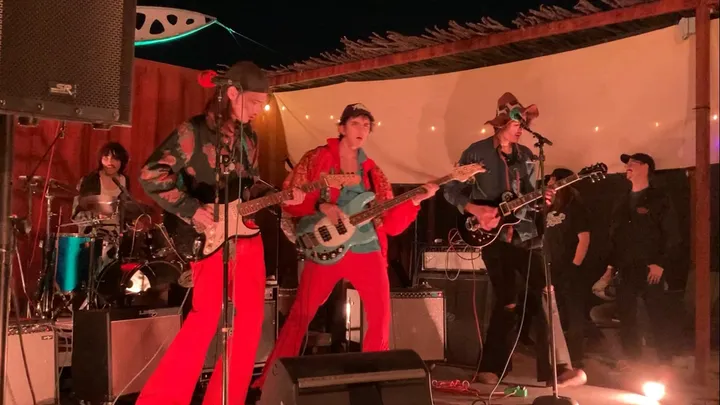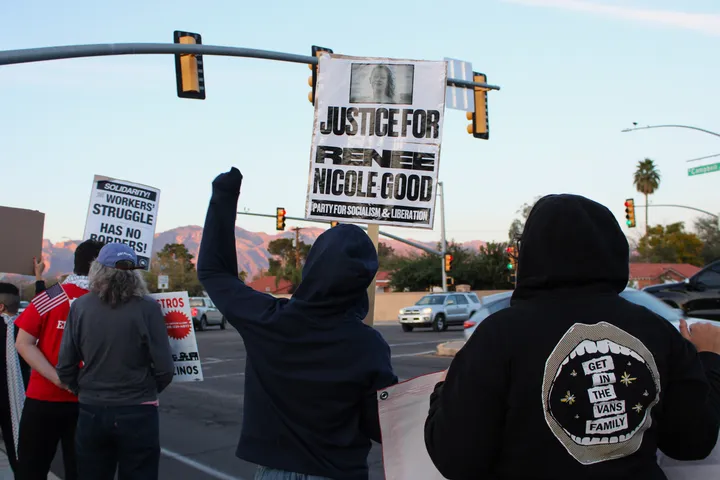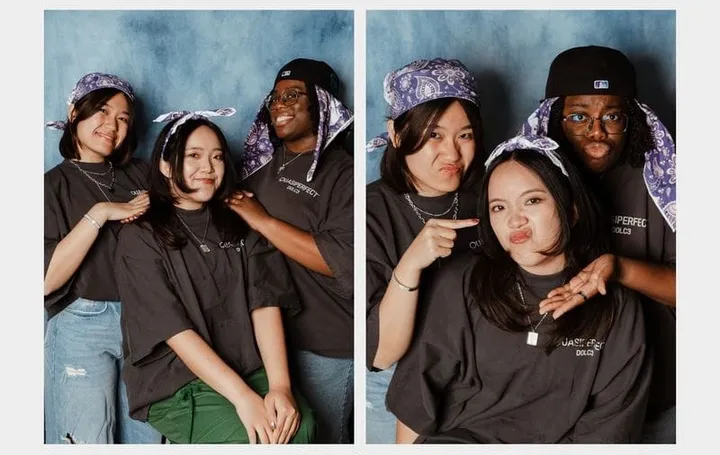‘Agua Para el Pueblo’ project expands free summer water stations
A Tucson mutual aid project is expanding its network of free water stations to help keep people safe and hydrated during the summer heat.
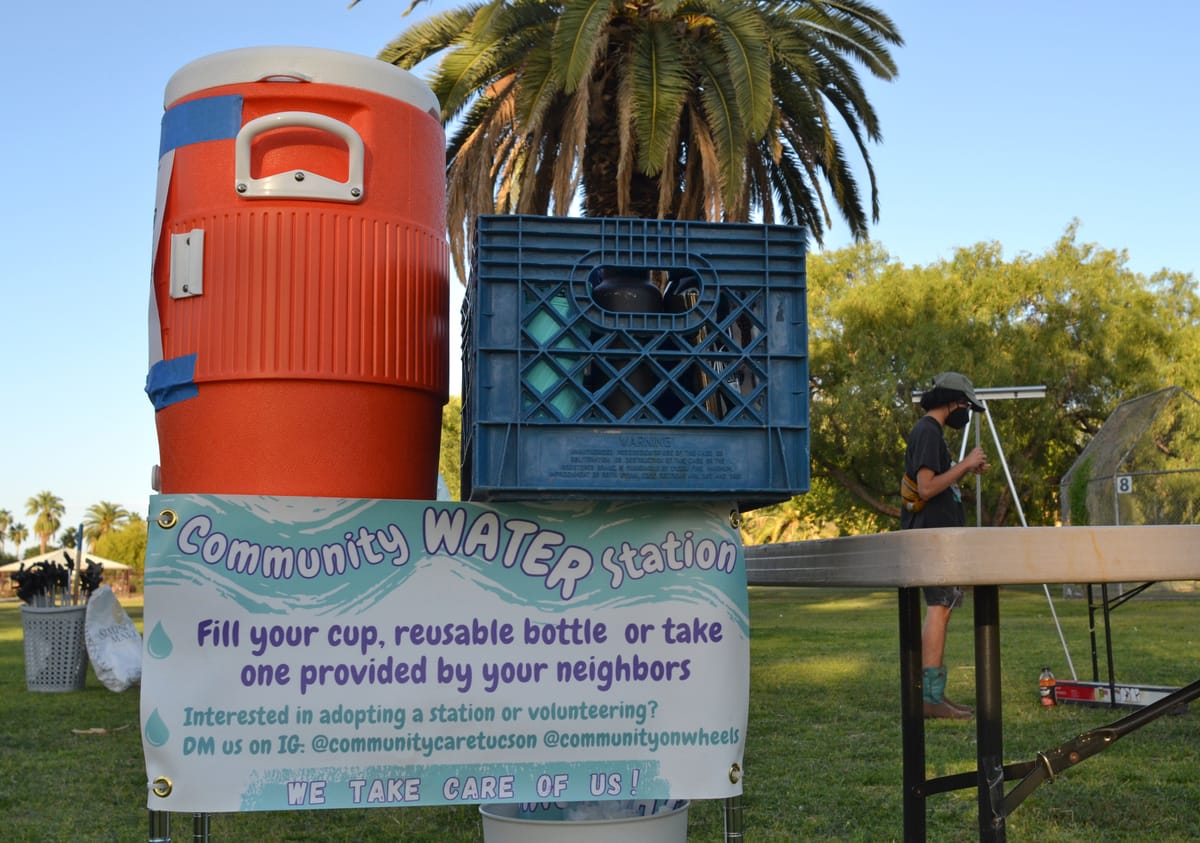
In the face of rising summer heat, a grassroots project in Tucson is turning water into a symbol of public safety and solidarity.
Community Care’s new “Agua Para el Pueblo” initiative is placing free water stations around town, offering hydration to anyone who needs it and building a network of mutual aid across the city.
There are already stations at businesses around downtown, at a church and at least one house. Last year, the mutual aid group placed water stations outside 13 participating businesses to help pedestrians and unhoused individuals access water during the summer.
Now that the program is official, the group is looking to increase the number of stations to 20 in the coming months.
“Last year was kind of an experiment, we didn’t know if it was going to work. We just set these places up at businesses that wanted to give it a shot, and then it worked really well,” said Community Care volunteer Tate Williams. “It went so well that we said when next summer starts, we’re going to try to scale it up and make it a bigger operation.”
The cost per station is about $175. Williams said one big difference from last year is the addition of two new partners — Just Communities Arizona and Reconciliación en el Rio — bringing in more funding for the project.
Just Communities is an organization that focuses on neighborhood safety and funding safety needs outside the justice system.
“We know and believe that neighborhoods know what they need to be safe, but that they don't have access to the resources or political power to get it,” said Executive Director Caroline Isaacs.
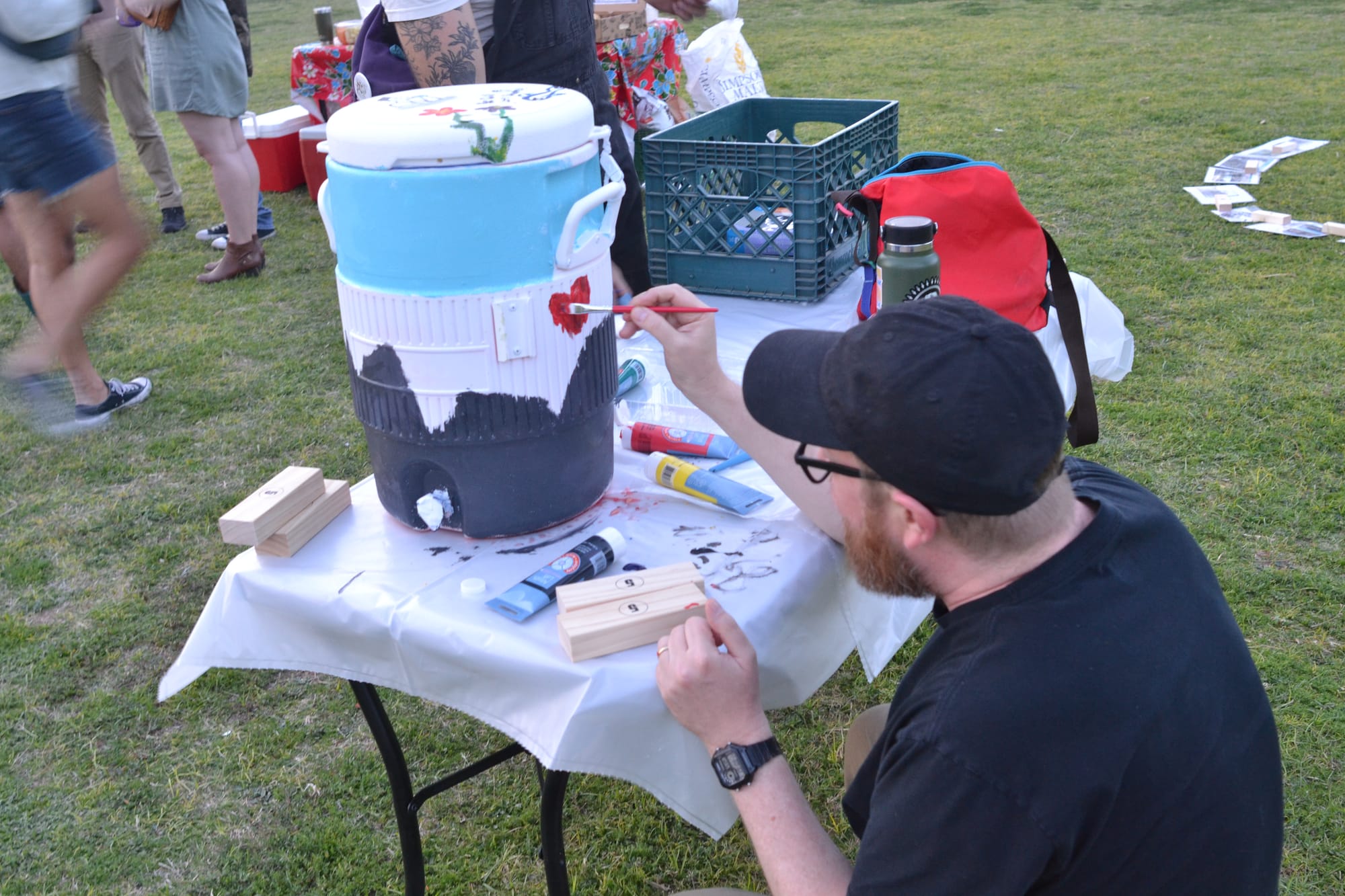
Just Communities’ involvement in the water station project is part of their Community Safety Incubator program, which gives community groups the resources they need to create their own safety solutions.
“This year we reached out to a couple of mutual aid organizations to have a citywide incubator, which is providing, in this case, water,” Isaacs said.
Just Communities receives state funding for the safety incubator program and is continually looking for neighborhoods or groups that want to participate.
“So much of our work is getting people to think about what safety is, and looks like. I think water is pretty much the baseline example. You’re not safe without water to drink in Arizona during the summer,” Isaacs said. “We always think of public safety in terms of police and incarceration, which is a factor, but what are the other things we need to be safe, and how can we invest in that?”
Reconciliación en el Rio is a project organized by Angel Enriquez Breault that focuses on education and restoration of the Santa Cruz River through reconciliation ecology, a branch that explores ways to increase biodiversity in human ecosystems.
Breault spends much of his time down by the river and says that was his motivation for getting involved in Agua Para el Pueblo.
“I was always down there because of the new plants and birds that were showing up, but I was also seeing (convenience store cups) … all the time,” said Breault.
The more he engaged with people living on the street, the more Breault said he understood the connections between issues that are often discussed separately.
“People talk about trash in the river and blame homeless people, but where did they get the trash?” Breault said. “Someone is making money on this issue that is then being blamed on the most vulnerable living in the harshest conditions, so the more time you spend caring for nature and picking up trash, the harder it is to ignore that.”
The project does more than just provide water to those in need, Breault said. It also looks at how community members can take care of watersheds and neighborhoods by eliminating trash and creating safe spaces.
The more people have access to water stations and refillable containers, the less they’ll rely on convenience stores and their disposable cups, he said.
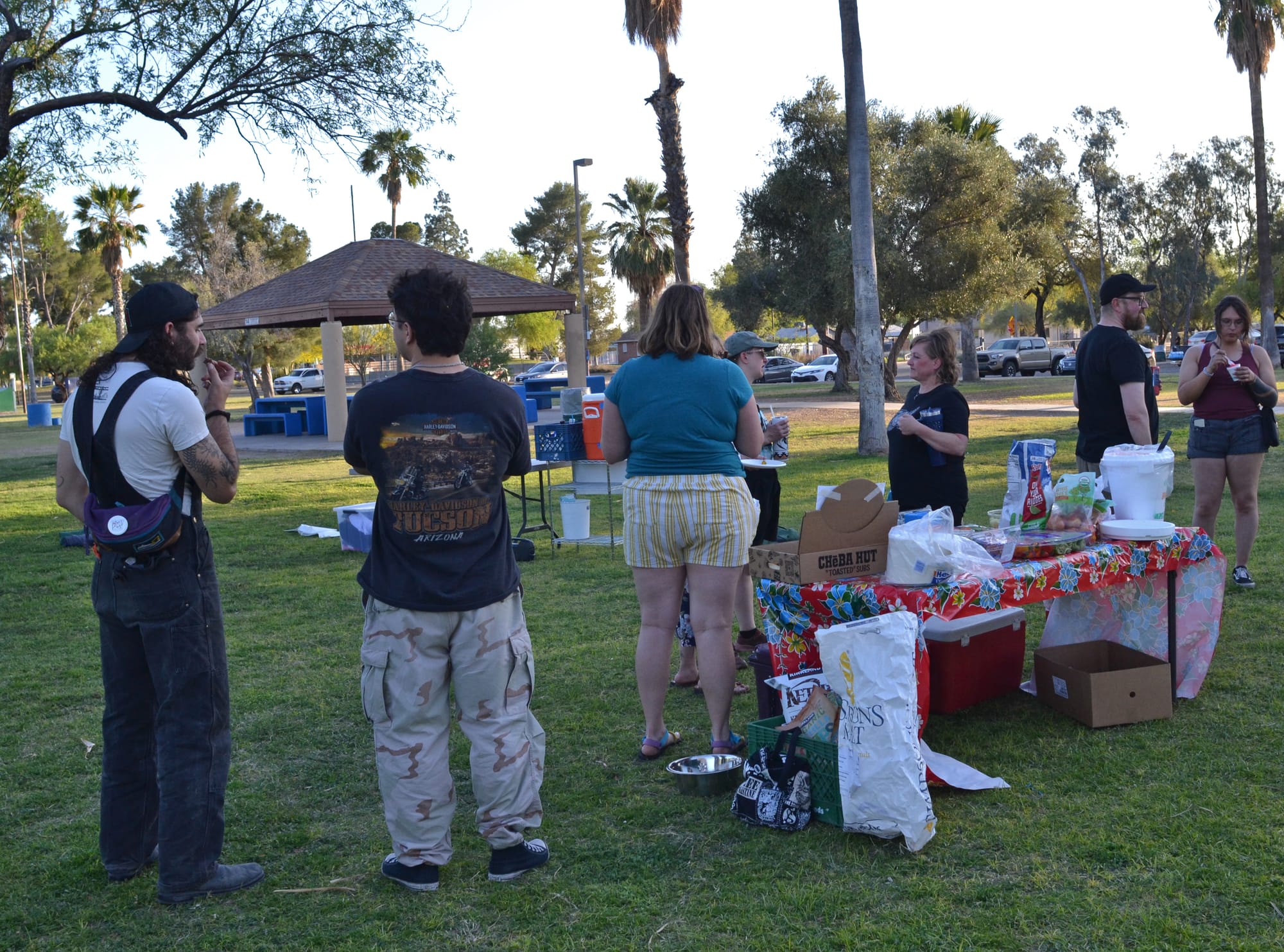
It’s not about pointing fingers, but realizing that those who care about the environment should also care about issues like access to water, Breault said.
“Environmental stewardship and mutual aid are built on the same principles of caring for each other and where we are, so the more we can bring these principles together, the better we can demonstrate that problems like these are connected,” he said.
Cheba Hut is one of the businesses participating in the project, due to the high volume of foot traffic around the University of Arizona-area hotspot.
“Being between two bus stations, we see a lot of people walking on 6th or Campbell,” said marketing lead Juan Flores. “A lot of times they'll come in the morning or after we close, so this is a great way to make sure we're still giving access to water.”
Flores said that Cheba Hut has noted an uptick in people stopping in to ask for water over the past year.
“I thought (this) was a cool idea, so I brought it to my manager and he was down with it,” Flores said.
The restaurant partnered with Community Care in the past to host a clothing drive and has been looking for ways to expand the partnership.
“We’re excited for it,” said Flores. “Part of Cheba Hut is engaging with the local community, and this is a way to uplift the community … it's a way to give back.”
Community Care’s Williams said the first three stations will be set up at Cheba Hut, Crooked Tooth Brewing Co. and BICAS. After that, the group hopes to get the remaining stations up and running quickly, before temperatures start to peak.
“This program (is) about water, getting people water and fighting heat-related illness and death, specifically around the unhoused population. But we also see it as a way to spread mutual aid all over the city,” Williams said.
Colton Allder is a Tucson-based freelancer who reports for Tucson Spotlight. Contact him at callder1995@gmail.com.
Tucson Spotlight is a community-based newsroom that provides paid opportunities for students and rising journalists in Southern Arizona. Please support our work with a paid subscription.

